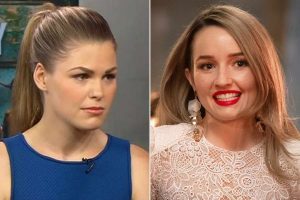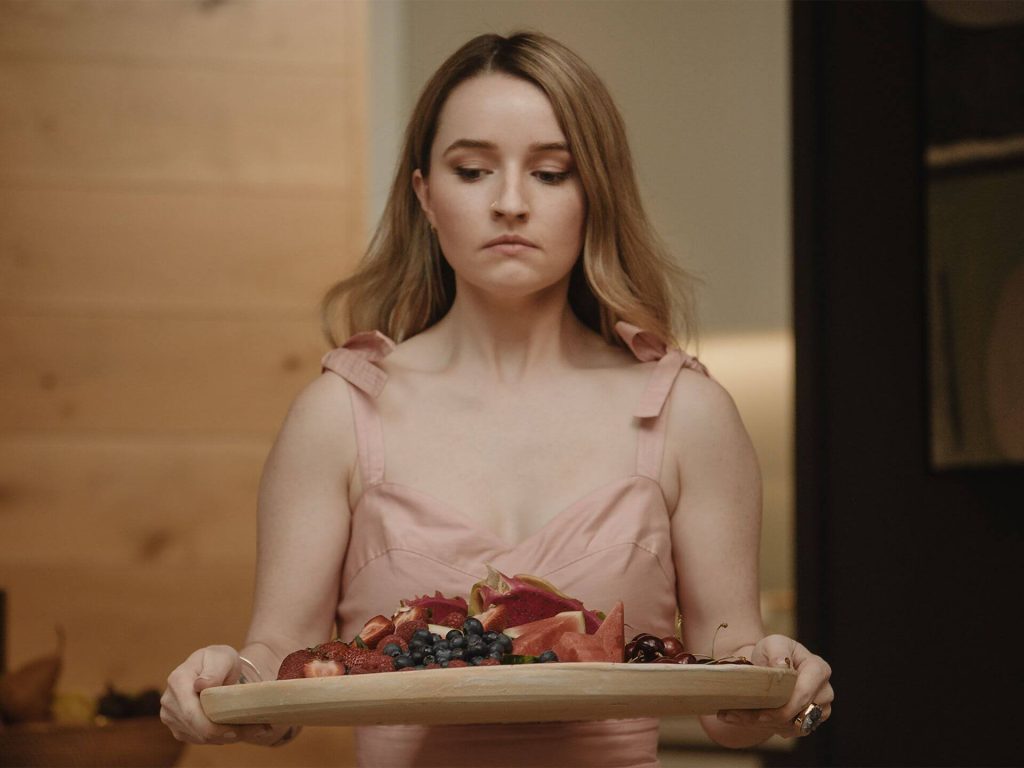world news
Apple Cider Vinegar: The Shocking True Story That Inspired Netflix’s New Series
The world of wellness influencers is often filled with bold health claims, miracle cures, and inspiring personal stories. But sometimes, these seemingly uplifting narratives hide a darker truth. Netflix’s new limited series, Apple Cider Vinegar, explores one of the most infamous cases of health-related fraud—the story of Belle Gibson, an Australian wellness influencer who falsely claimed to have cured terminal brain cancer using natural remedies.
Gibson rose to fame through her app, The Whole Pantry, and a successful cookbook, amassing a devoted following. But in 2015, investigative journalists uncovered the shocking truth: Gibson never had cancer, and her entire wellness empire was built on deception. Her lies led to a major scandal, a court case, and a public reckoning about the dangers of misinformation in the health and wellness industry.
This article delves into the real-life story behind Apple Cider Vinegar, examining Belle Gibson’s rise and fall, the impact of her deception, and what this cautionary tale reveals about the dangers of unchecked health claims in the digital age.

The Rise of Belle Gibson: From Wellness Star to Global Fraud
Belle Gibson’s story began like many in the world of social media—an ordinary woman sharing her extraordinary health journey. She claimed to have been diagnosed with terminal brain cancer in 2009 and given only months to live. Instead of pursuing conventional treatment, Gibson told her followers that she turned to natural remedies, including apple cider vinegar, healthy eating, and alternative therapies. Miraculously, she claimed, these methods cured her cancer.
Her story resonated with thousands of people, especially those who distrusted mainstream medicine or were seeking alternative health solutions. She capitalized on this momentum by launching The Whole Pantry, a wellness app filled with recipes and lifestyle advice. The app became wildly successful, even securing a partnership with Apple, which planned to feature it on the Apple Watch.
A Whole Pantry cookbook followed, further cementing Gibson’s reputation as a health guru. She amassed a devoted following who saw her as an inspiration—a living example that alternative medicine could triumph over life-threatening illness.
But while Gibson’s influence was growing, cracks in her story were beginning to show.
The Unraveling of a Lie: Investigative Journalists Expose the Truth
In 2015, Australian journalists Beau Donelly and Nick Toscano began investigating Gibson’s claims. Their research uncovered shocking inconsistencies in her story, leading to a bombshell revelation: Belle Gibson had never had cancer.
The first red flags appeared when Gibson failed to provide medical records or any concrete evidence of her diagnosis. Further investigation revealed that her history of illnesses—claims of multiple strokes, heart surgeries, and other severe conditions—were fabricated. Her so-called “miracle cure” was nothing more than a complete lie.
The exposé revealed another troubling aspect of Gibson’s deception: she had promised to donate proceeds from her app and book sales to charity but failed to follow through. Charitable organizations she claimed to support had never received a cent.
When confronted, Gibson offered a series of contradictory explanations. At times, she insisted she believed she had cancer but had been misled by doctors. In other interviews, she admitted to fabricating parts of her story. Her refusal to take full responsibility only fueled public outrage.
The fallout was swift. Apple removed The Whole Pantry from its platform, her book was pulled from shelves, and her reputation was permanently tarnished. But the damage she caused extended beyond her personal downfall—it had real-world consequences for those who trusted her advice.

The Impact of the Belle Gibson Scandal: Lives at Risk
The true tragedy of Belle Gibson’s lies wasn’t just her deception—it was the harm she inflicted on vulnerable people. Many cancer patients and individuals with chronic illnesses followed her advice, believing that alternative treatments could replace conventional medicine.
Misinformation in the wellness industry is dangerous because it exploits people at their most desperate moments. Those struggling with serious illnesses may feel distrustful of mainstream medicine, and influencers like Gibson offer false hope. Some of her followers reportedly delayed or avoided medical treatment in favor of natural remedies, which could have serious or even fatal consequences.
The Gibson scandal also highlighted the broader issue of unverified health claims on social media. Influencers with no medical background often promote miracle cures, detoxes, and unscientific health regimens without accountability. While some may genuinely believe in their advice, others—like Gibson—knowingly spread false information for financial gain.
In response to the scandal, medical professionals and researchers emphasized the need for critical thinking and skepticism when evaluating health claims. They urged the public to seek information from reputable sources rather than social media personalities with no medical expertise.
Patrick Mahomes LIX Super Bowl Kansas City Chiefs Unisex T-Shirt
Legal Consequences and Where Belle Gibson Is Now
Following the exposure of her fraud, Belle Gibson faced legal action in Australia. The Federal Court of Australia found her guilty of misleading consumers and ordered her to pay a $410,000 AUD fine for deceptive conduct. Despite this, she reportedly failed to pay the full amount, leading to further legal proceedings.
Gibson largely retreated from public life after the scandal, though occasional reports have surfaced about her attempts to re-enter the wellness space under different aliases. However, her credibility is permanently shattered, and she remains a cautionary tale of the consequences of misinformation.
Today, she lives in relative obscurity in a Melbourne suburb, far removed from the influencer lifestyle she once enjoyed. While she may have faded from public view, the damage she caused serves as a stark warning about the dangers of fraudulent health claims.
Lessons from the Belle Gibson Scandal: The Future of Health Misinformation
The Netflix series Apple Cider Vinegar brings renewed attention to Belle Gibson’s deception, sparking conversations about the dangers of misinformation in the wellness industry. But what can we learn from this case, and how can we prevent similar fraud in the future?
- Fact-Checking and Critical Thinking – Consumers must be cautious when evaluating health claims, especially those that seem too good to be true. Always verify information from reputable medical sources rather than relying on social media influencers.
- Holding Influencers Accountable – The wellness industry lacks regulation, allowing individuals with no medical background to promote unproven treatments. Greater oversight and stricter policies on health-related claims are needed to protect the public.
- Educating the Public on Medical Science – The Gibson case exposed widespread misinformation about cancer treatments and alternative medicine. Promoting scientific literacy can help individuals make informed health decisions rather than falling for pseudoscience.
- Recognizing the Role of Social Media Platforms – Platforms like Instagram, YouTube, and TikTok play a significant role in spreading health misinformation. They must take responsibility for preventing the promotion of false medical claims and ensuring that credible sources are prioritized.
- Supporting Those Affected by Health Fraud – Many people who followed Gibson’s advice may have suffered serious consequences. Raising awareness about health fraud can prevent others from falling into similar traps in the future.
Conclusion
Belle Gibson’s story, as explored in Netflix’s Apple Cider Vinegar, is more than just a scandal—it’s a cautionary tale about the power of misinformation in the digital age. Her rise and fall serve as a stark reminder that not all health advice is trustworthy, and the consequences of false claims can be devastating.
While Gibson has faded from the spotlight, the broader issue of wellness fraud remains. Social media continues to be a breeding ground for unverified health claims, making it crucial for individuals to approach such information with skepticism.
Ultimately, Apple Cider Vinegar isn’t just a retelling of Gibson’s deception—it’s a wake-up call for consumers, influencers, and social media platforms alike. The ke
From decoratedbliss

